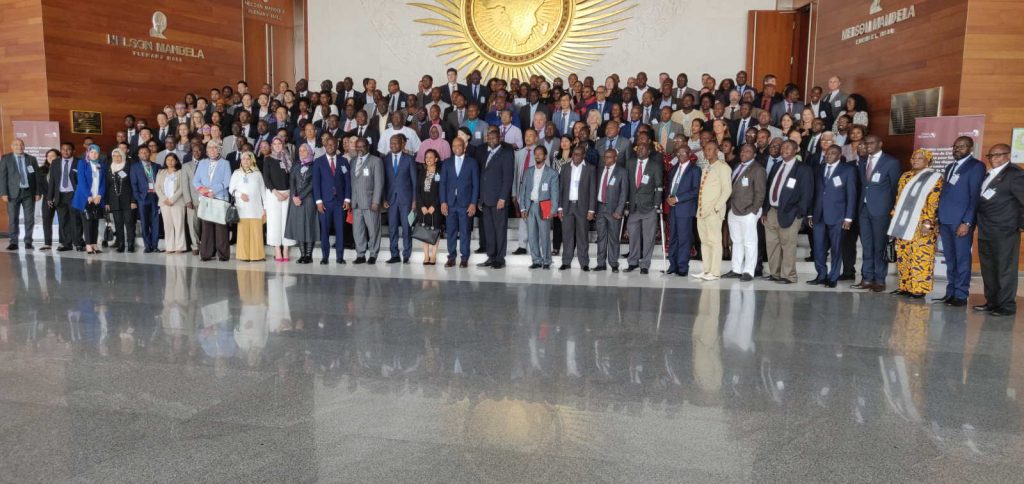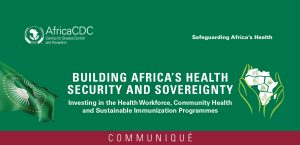WE, Member States and participants in the Africa Collaborative to Advance Diagnostics Meeting held from 24 to 25 September 2019 in Addis Ababa, Ethiopia;
Mindful that AIDS Watch Africa is an entity of the African Union with the specific mandate to lead advocacy, accountability and resource mobilization towards a robust African response to end AIDS, tuberculosis and malaria by 2030.
Mindful also that the efforts of AIDS Watch Africa are predicated on the successive political commitments of Heads of State and Government to prioritize AIDS, tuberculosis and malaria (Abuja Declarations) and the broader health and development agenda.
Mindful of the fact that HIV treatment with sustained viral suppression is the most effective, scientifically proven HIV prevention, as “Undetectable equals Untransmittable”;
Mindful of the important leadership role played by the Ministries of Health of Member States to increase access to HIV treatment and monitoring services;
Further, noting the progress made to date by Member States to scale up viral load testing programmes to optimally monitor the effectiveness of antiretroviral therapies; and
Recognizing that access to viral load testing and optimal utilization of test results for clinical management is a universal right for all people living with HIV (PLHIV) who are receiving antiretroviral therapy, regardless of age, gender, race, ethnicity, social status, or geographical location;
Mindful of the efforts being made by the U.S. President’s Emergency Plan for AIDS Relief, the Global Fund, partners, donors, and manufacturing companies to support Member States to increase timely access to viral load testing at all levels of the health care delivery system;
Deeply concerned that despite these efforts, access to and uptake of viral load testing remains poor for PLHIV due to many challenges toward achieving the fast-track aim of ending HIV/AIDS as a public health threat by 2030;
WE COMMIT to launching the HIV Viral Load Movement among Members States aimed to accelerate and sustain access and uptake of HIV viral load testing at all levels of the health care delivery system.
This Movement will consist of five components:
- Mobilize domestic financing and resources to accelerate the scale-up of viral load testing through strengthening networks, tiered and integrated health systems, and services;
- Promote the use of innovative approaches for integrated technologies (such as point of care tests), optimized diagnostic networks, workforce development, access to commodities and supply chain management to facilitate access to viral load testing and return of results for optimal clinical management;
- Strengthen national regulatory authorities, monitoring programmes, networks, and continuous quality improvement to delay emergence of HIV drug resistance;
- Develop strategic partnerships with the civil society, policymakers, donors, and the private sector to ensure affordable cost per test;
- Engage civil society organizations, PLHIV, and other stakeholders to support a robust demand creation for viral load testing and adequate utilization of test results for improved patient outcomes.
To achieve these goals, we REQUEST that the donor community, manufacturing companies, Member States, and implementing partners:
- Increase their commitments to HIV viral load scale-up programmes to achieve effective HIV treatment monitoring and to support Member States towards achieving fast-track targets of HIV/AIDS control by 2030;
- Provide HIV treatment, monitoring and preventive services at minimal cost to facilitate universal access to HIV viral load testing for all segments of the population through a people-centered approach;
- Monitor the progress made towards increasing access to viral load testing regularly by using key performance indicators; and
- Facilitate the dissemination of knowledge, best practices and tools supporting the sustainable scale-up of viral load testing through South-to-South collaborations, training, technical assistance and innovative public-private partnerships.







